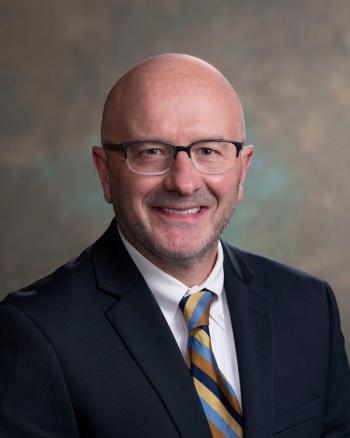
One Big Beautiful Bill Act offers practices new expansion opportunities
New tax provisions in the One Big Beautiful Bill Act empower medical practices to expand, enhance cash flow and simplify compliance for physicians.
On July 4, President Donald J. Trump signed H.R. 1, commonly known as the One Big Beautiful Bill Act (“OBBBA”). This new legislative extends or enhances many of the tax provisions from the 2017 Tax Cuts & Jobs Act which were set to sunset at the end of this year. Many of the provisions in OBBBA will have a significant impact on tax compliance and deductible expense rules for medical practices making it easier for physicians to expand their healthcare practices.
The first significant change for medical practices is the enhanced bonus depreciation for capital expenses. The new deduction Section 179 expensing cap doubles from $1.25 million to $2.5 million phasing out at $4 million in purchases up from $3.13 million for property placed in service post-2024. Additionally, the bill permanently restores 100% bonus depreciation for qualified property including equipment and certain nonresidential real estate acquired and placed in service after January 19, 2025.
This incredibly strong provision means that medical practices can expand their offices, add new offices, and purchase new equipment immediately while taking the 100% bonus depreciation in the year the assets are placed in service. Given the expenses related to new medical equipment and expansions, physicians could reduce their taxable income significantly while boosting cash flow.
The OBBBA has also made the Qualified Business Income (QBI) deduction permanent for pass-through business owners. Medical practices are generally considered to be Specified Service Trade or Businesses (SSTB) so QBI deductions for owners with income exceeding current thresholds ($483,000 for married filing jointly and $241,950 for all other filing statuses) will still be disallowed. However, the permanent deduction of 20% supports long-term planning, especially if compensation is structured thoughtfully. Additionally, a two-step phased calculation was introduced for high-income taxpayers which will simplify compliance and reduce administrative burden.
One of the more controversial and complicated provisions in OBBBA is the new state and local tax (SALT) deduction caps. When the 2017 Tax Cuts & Jobs Act was passed, SALT deductions were capped at $10,000 for individual taxpayers. This led to many states creating what is called a pass-through entity tax (PTET) where a partnership or S Corporation business – including medical practices – would pay state and local taxes directly rather than the individual owners. These pass-through entity taxes could then be deducted from the overall revenue of the business which lowered the tax burden. With OBBBA, the new state and local tax deduction was increased to $40,000 per year effective 2024 through 2029 with 1 percent annual increases and then reverts back to $10,000 in 2030. However, the final bill does not limit the use of pass-through entity tax as a SALT cap workaround. Many pass-through entities will continue to utilize the PTET even with the enhanced individual SALT deductions.
Other employer related tax credits have also been expanded or enhanced which medical practices can take advantage of. First, OBBBA increased the amount of qualified childcare expenses taken into account from 25% to 40%. The maximum amount of the credit is now $500,000 or $600,000 for eligible small businesses. Additionally, the paid family and medical leave credit was amended to make the employer credit for paid and family medical leave permanent. As medical practices continue to recruit and retain talent, these new tax credits can make the quality of life for their employees more attractive.
For physicians themselves, there are numerous personal tax provisions in the OBBBA which could also be beneficial. These include extending the 2017 Tax Cuts & Jobs Act standard deductions as well as new credits for charitable contributions and estate planning.
OBBBA presents a unique opportunity for medical practices to greatly expand their practices over the coming years. The enhanced bonus depreciation for capital expenses and permanent 20 percent deduction means physicians will have greater clarity over the next five years when it comes to cash flow.
Jim Chinn, CPA is the leader of Keiter’s Healthcare and Medical Practices team. He has over 10 years of public accounting experience and provides tax consulting and compliance services to privately owned businesses and individuals.
Newsletter
Optimize your practice with the Physicians Practice newsletter, offering management pearls, leadership tips, and business strategies tailored for practice administrators and physicians of any specialty.






